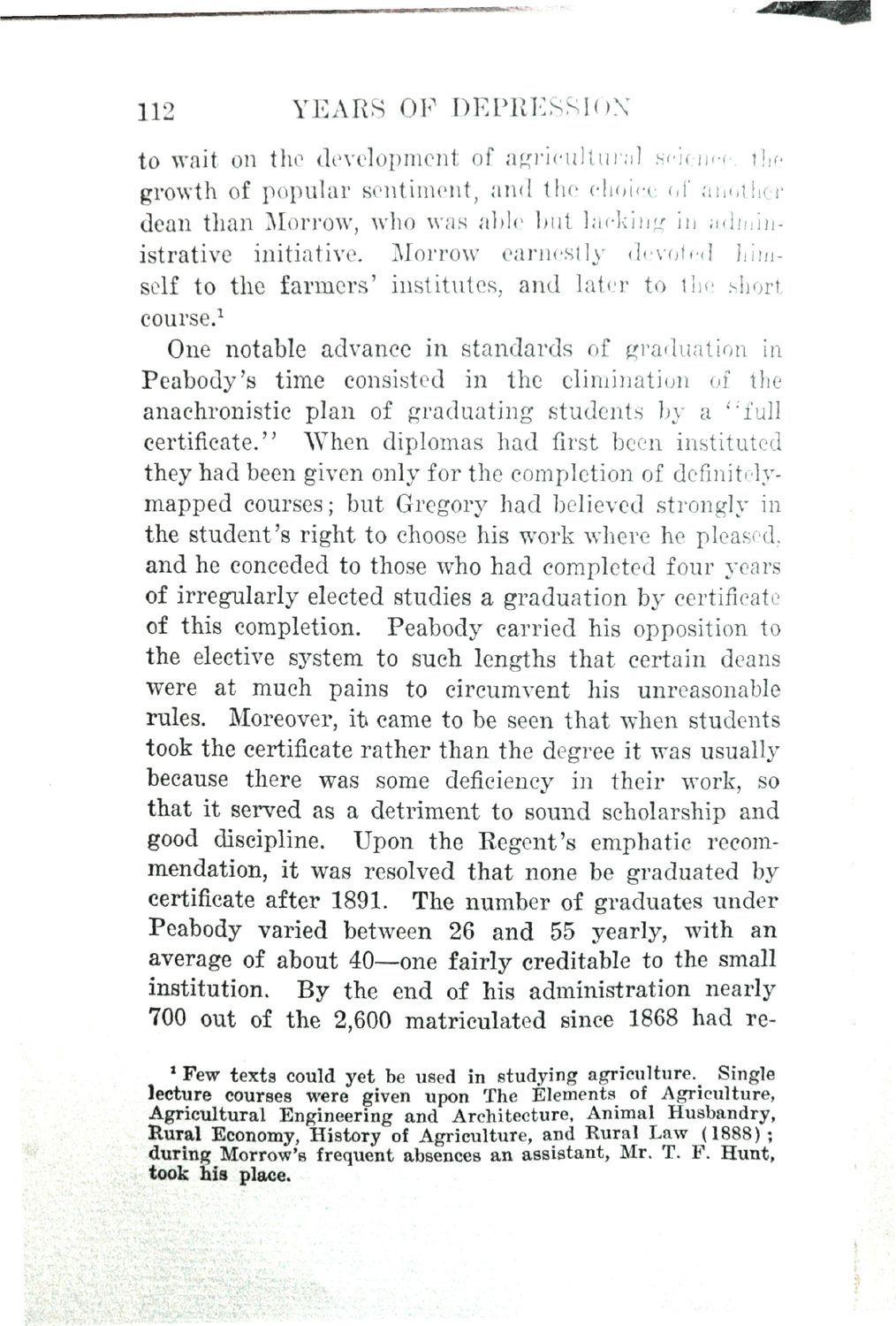| |
| |
Caption: Book - History of the University (Nevins)
This is a reduced-resolution page image for fast online browsing.

EXTRACTED TEXT FROM PAGE:
112 YEARS OP DEPRESSION to wait on the development of agricultural science, the growth of popular sentiment, and the choice of another dean than Morrow, who was able but lacking in administrative initiative. Morrow earnestly devoted himself to the farmers' institutes, and later to the short course.1 One notable advance in standards of graduation in Peabody's time consisted in the elimination of the anachronistic plan of graduating students by a "full certificate." When diplomas had first been instituted they had been given only for the completion of definitelymapped courses j but Gregory had believed strongly in the student's right to choose his work where he pleased, and he conceded to those who had completed four years of irregularly elected studies a graduation by certificate of this completion. Peabody carried his opposition to the elective system to such lengths that certain deans were at much pains to circumvent his unreasonable rules. Moreover, it came to be seen that when students took the certificate rather than the degree it was usually because there was some deficiency in their work, so that it served as a detriment to sound scholarship and good discipline. Upon the Regent's emphatic recommendation, it was resolved that none be graduated by certificate after 1891. The number of graduates under Peabody varied between 26 and 55 yearly, with an average of about 40—one fairly creditable to the small institution. By the end of his administration nearly 700 out of the 2,600 matriculated since 1868 had reFew texts could yet be used in studying agriculture. Single lecture courses were given upon The Elements of Agriculture, Agricultural Engineering and Architecture, Animal Husbandry, Rural Economy, History of Agriculture, and Rural Law (1888); during Morrow's frequent absences an assistant, Mr. T. F. Hunt, took his place. 1
| |